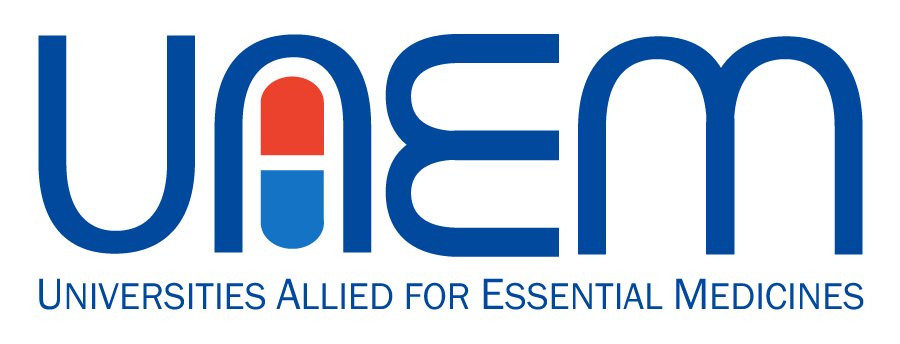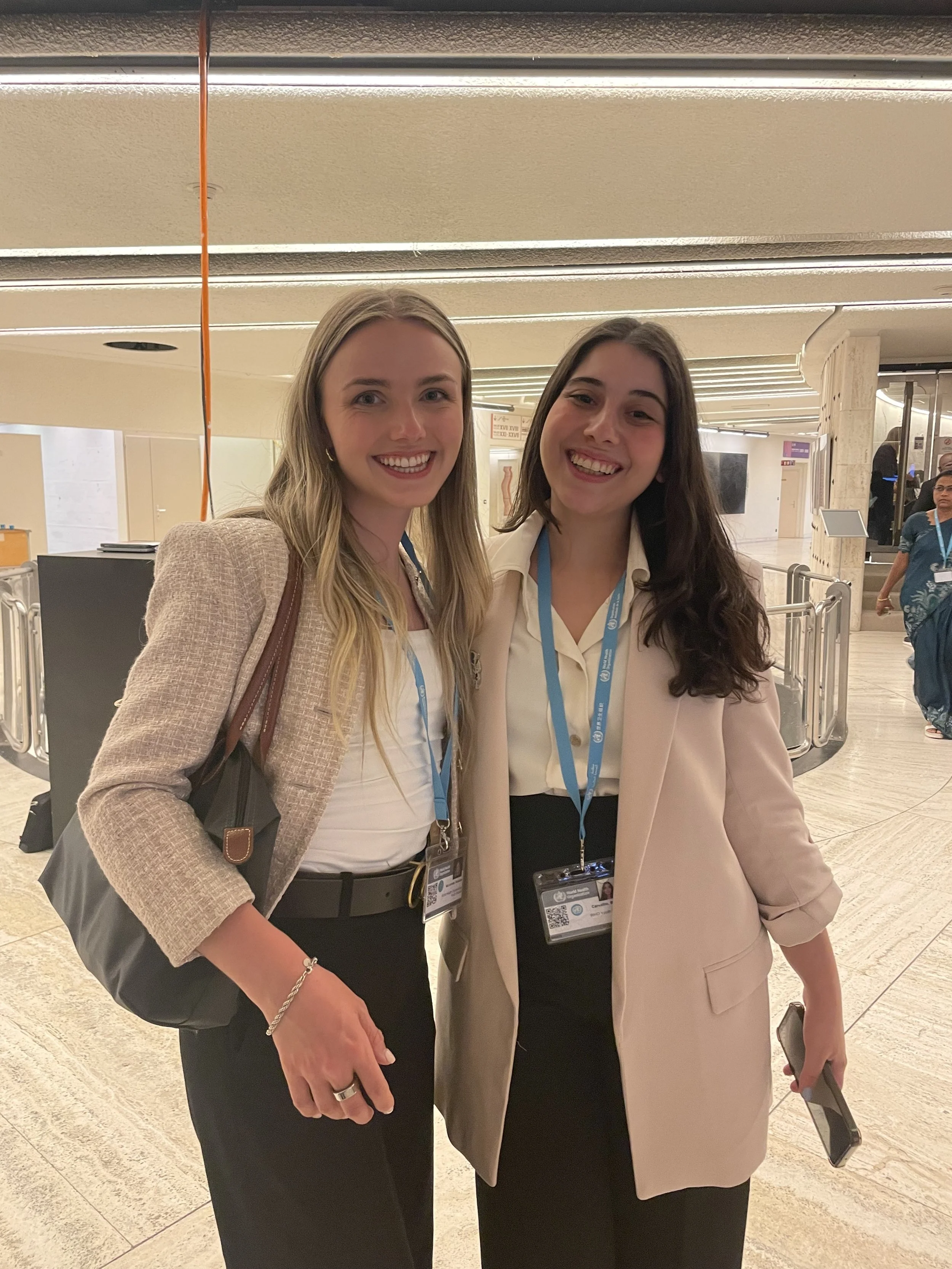UAEMer’s Experience at the World Health Assembly
by Vanessa McLennan
This May, I had the opportunity to attend the 78th World Health Assembly (WHA) in Geneva, Switzerland as a delegate of the World Health Organization (WHO) Youth Council, in which I had the privilege of representing Universities Allied for Essential Medicines (UAEM). As a recent pharmacology graduate and an incoming masters student in public health, it was an honour to experience the Assembly and learn from renowned leaders in health., Especially with regards to increasing access to medicines – the core pillar of UAEM and a fundamental driver for my career.
While the WHA is primarily a space for official delegations of WHO member states to make decisions, it is also an important time for civil society, youth, and non-state actors to engage and advocate for change. The delegation from the Youth Council brought a new dimension through their unique perspectives to discussions and side events, emphasizing the importance of inclusion, accountability, and long-term thinking within global health governance. This year’s WHA has the highest number of youth in attendance ever – an incredible mark showing the direction of youth inclusion in these spaces.
As a representative of UAEM, I was especially drawn to conversations surrounding access to medicines, innovation, and the public return on public investment in research. I spent the week attending plenary sessions, side events, and informal discussions with both non-state actors and member state delegates to learn more about the progress, and ongoing challenges, in the efforts to achieve equitable pharmaceutical access. Standout side events included Health Action International’s (HAI) event, Pharmaceutical Transparency: From Resolution to Reality, and the Knowledge Ecology International (KEI) event on improving the transparency of the value chain for biomedical products, which included distinguished speakers from Drugs for Neglected Diseases Initiative, Médecins Sans Frontières, HAI and KEI. The conversations within these events echoed what UAEM has been advocating for for decades: that medical innovation must serve the public, and that publicly funded research must lead to both affordable and accessible products. There is an international community championing for this to be a reality, but political will and proactive policies are essential to achieving this.
Knowledge Ecology International side event: Workplan for WHO and member states to improve the Transparency of the Value Chain for Biomedical Products
One of the most historic moments during this year's Assembly was the adoption of the Pandemic Agreement. It passed without a single opposing vote which is an incredible show of multilateralism in global health diplomacy. While there are still negotiations ahead for the language within the agreement, particularly within the Pathogen Access and Benefit Sharing section, this adoption sets the foundation for a future pandemic response rooted in equity and global coordination. From UAEM’s perspective, how access and transparency are operationalized within the agreement will be critical to watch.
Delegates in the plenary clapping, moments after the adoption of the Pandemic Agreement
UAEM's WHO Youth Council representatives Vanessa McLennan (left) and Bianca Carvalho (right) inside the Palais des Nations.
Outside of the formal sessions, I had the privilege of connecting with many youth from around the world that are leaders and advocates within global health. Learning about the impactful work they have contributed to the global health landscape this early in their careers was inspiring, empowering, and gives me immense hope for the future direction of global health.
Representing UAEM at the World Health Assembly deepened my understanding of how global policy is shaped and how civil society can contribute in these spaces. I left Geneva with a renewed sense of purpose, energized by the people I met and the conversations I had, and more committed than ever to ensuring that health systems and global policy prioritizes equity and justice.





